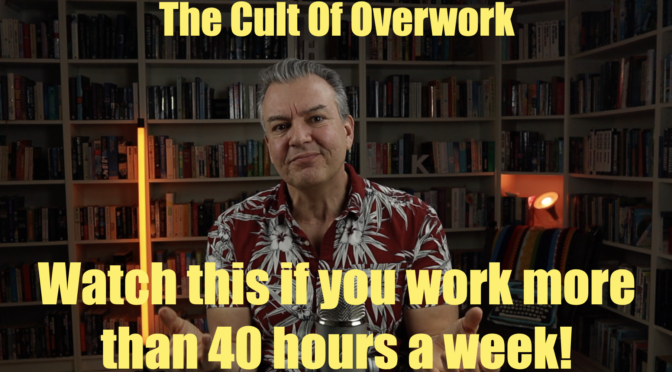
European workers don’t work enough hours compared to Americans. That is the message in this article written by a London-based venture capitalist. From the article:
As anyone who’s ever been there or visited will attest, in Silicon Valley everyone is working *all of the time*.
And while this might seem unhealthy, not scalable, obsessive, manic or simply ridiculous, from an ecoystem perspective it’s basically unbeatable. If you want to build companies and ride the wave of innovation, it’s a 24/7 preoccupation — not just a lifestyle business. By contrast, I am in London-based startups’ offices all the time and I am gobsmacked when they are nearly empty by 6:30 PM.
I can see where he’s coming from – I really can. It’s so easy to equate “working long hours” with “commitment” and “success”. When you see the office full of people late at night, you automatically think “WOW, these people are serious – they’re going places.”
You’d be forgiven for thinking so, but you’d be no less wrong. Please show me a single study that demonstrates the link between massive overwork (ie. working 60, 70, 80 or more hours a week for long stretches of time) and increased worker productivity and corporate success.
On the other hand, there’s stuff like this:
In 1991, a client asked me to conduct a study on the effects of work hours on productivity and errors…
My findings were quite simply that mistakes and errors rose by about 10% after an eight-hour day and 28% after a 10-hour day…
I also found that productivity decreased by half after the eighth hour of work. In other words, half of all overtime costs were wasted since it was taking twice as long to complete projects. After the study was done, a concerted effort was made to increase staffing.
(Source)
The cult of overwork is the prevailing belief that the more hours people work, the better for the company. That notion is not only harmful, it is dead wrong, as this story from Arlie Hochschild’s book The Time Bind demonstrates.
One executive, Doug Strain, the vice chairman of ESI, a computer company in Portland Oregon, saw the link between reduced hours for some and more jobs for others. At a 1990 focus group for CEOs and managers, he volunteered the following story:
“When demand for a product is down, normally a company fires some people and makes the rest work twice as hard. So we put it to a vote of everyone in the plant. We asked them what they wanted to do: layoffs for some workers or thirty-two-hour workweeks for everyone. They thought about it and decided they’d rather hold the team together. So we went down to a thirty-two-hour-a-week schedule for everyone furing a down time. We took everybody’s hours and salary down – executives too.”
But Strain discovered two surprises.
“First, productivity did not decline. I swear to God we get as much out of them at thirty-two hours as we did at forty. So it’s not a bad business decision. But second, when economic conditions improved, we offered them one hundred percent time again. No one wanted to go back!
Never in our wildest dreams would our managers have designed a four-day week. But it’s endured at the insistence of our employees.”
Interesting, huh? They cut back work-hours but production remains the same.
So where exactly is the evidence (apart from our own unexamined bias) that overwork is a prerequisite for success?
Your take
What’s your take? Would you only invest your money in a company where the parking lot is always full – even on Sundays? What does tons of overtime do to you personally? Do you get twice as much done in an 80-hour week as in a 40-hour week? What does it do to your life outside of work?
Related posts



 :
: Stan has some questions about
Stan has some questions about 

